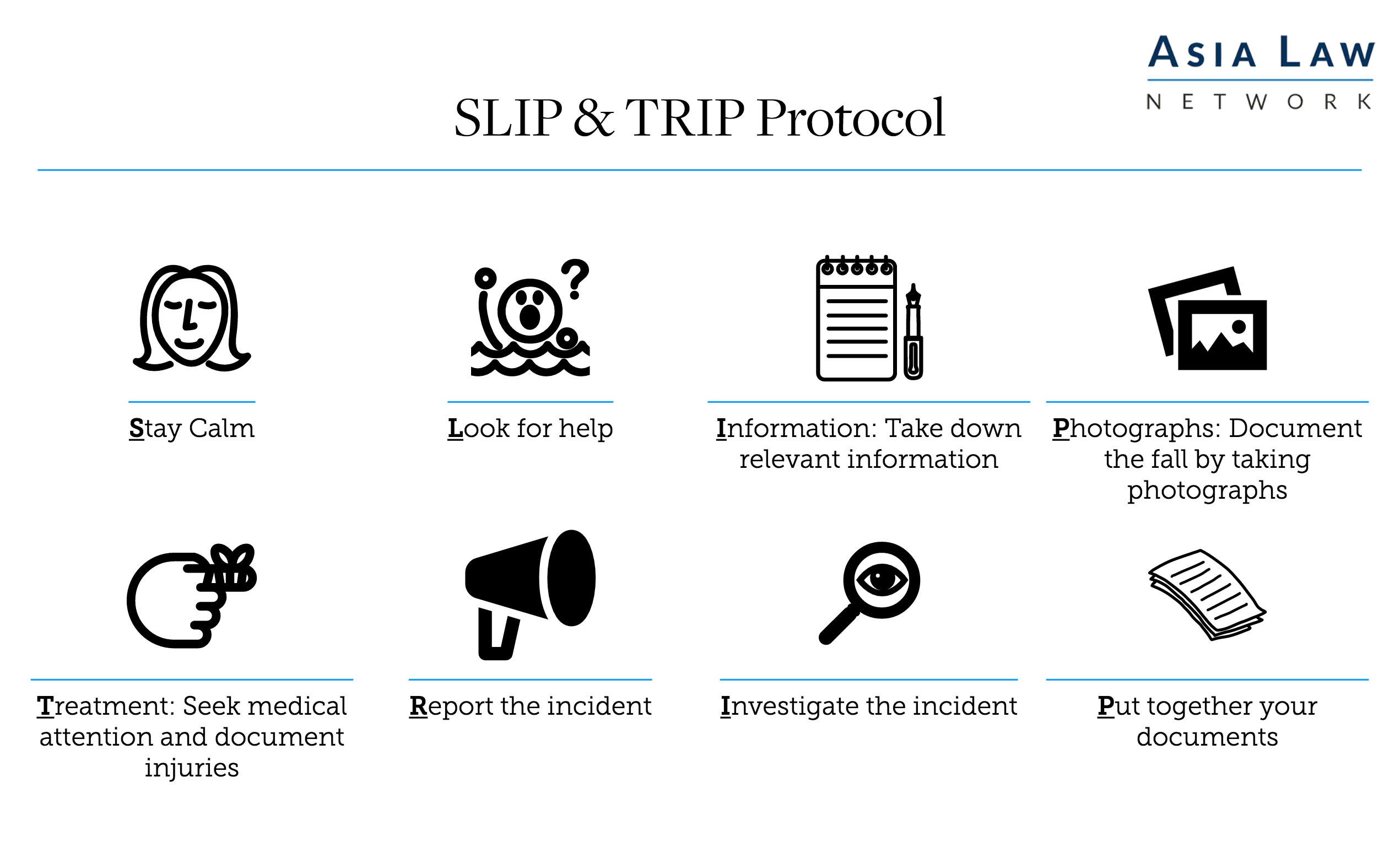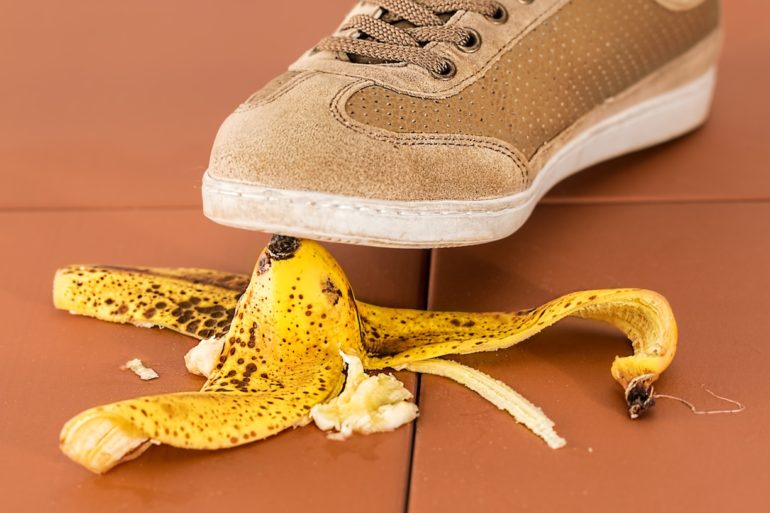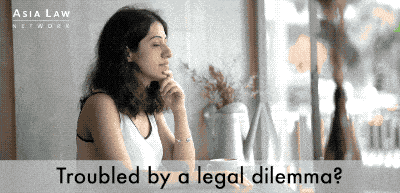Common Accidents
Slip / trip and fall accidents are one of the most common accidents that occur every day. If you have slipped / tripped and fallen on someone else’s property and suffered an injury as a result of the property owner’s negligence, you could be entitled to compensation for your pain and suffering, medical bills, loss of income, and more.
If you ever find yourself in such a situation, just follow the below SLIP & TRIP protocol to aid your claim against a negligent property owner.
SLIP & TRIP protocol
Stay calm
It is understandable for you to feel angry and flustered following a painful fall, but it is crucial that you stay calm and focus on the following important steps.
Look for help
Seek help from an employee or the manager of the premises where you suffered an accident. They will know the area best and will be able to get you the medical help you need fast.
Information
Once you have found help, collect the names, particulars and contact details of any witnesses, and of the people who rendered you help at first instance. They may be very helpful in proving your version of events down the road. If they are willing to help, ask them to give you a short witness statement at the scene of the accident, or as soon as possible.
Photographs
Most importantly, remember to take photographs of the exact location where you fell and anything that contributed to your fall. It is essential for you to document the conditions on the date and time of your fall because crucial evidence may be removed and conditions may change. Examples of what should be photographed include:
- A puddle of water /oil / soap / other foreign substance
- A leaking air conditioner causing a puddle on the floor
- Torn carpeting
- Uneven floor tiles
- Slippery surfaces, such as uncoated floors / staircases
- Lack of safety features, such as handrails / anti-slip coatings
Also, document your own condition after the fall. These include photographs of your injuries taken at the scene of your accident or at the hospital. For example, take photographs of any torn or wet clothing, or any visible injuries suffered as a result of the fall.
Treatment
Another essential step to take is for you to seek medical attention and document your injuries. This is important simply because you cannot establish a personal injury claim without any documentation of injury suffered.
Report it
If you have fallen in a store, ensure that you report your fall to the store management and that they report your accident according to their company protocol. If you have fallen anywhere else, make sure that your fall is reported to the building management or landlord. It is also important to make a police report for documentation purposes.
Investigate
Write via email or post to the management of the premises where you suffered your accident, informing them of your accident and that you intend to make a claim. Ask them to provide you with further information such as CCTV recordings of your accident and their accident report. It is important to keep a record of these communications, as it may help pinpoint liability later on.
Put together the documents
Make sure you keep all your documents and evidence from the above steps. Some of the most crucial documents you should have when seeking legal advice are:
- Police reports
- Medical reports
- Photographs of the accident and your injuries
- Receipts from medical treatments and related travel expenses
- Accident records from the manager of the premises
- Particulars of witnesses, first instance helpers, managers of the premises
- Email / SMS / written communications between you and all other involved parties such as witnesses and the building management / tenants

Need legal advice for personal injury claims?
If you need advice for accidents related matters, you can get a Quick Consult with Viviene or other lawyers. With Quick Consult, you can check out in minutes and for a transparent, flat fee of S$49, the lawyers will call you back on the phone within 1-2 days to answer your questions and give you legal advice.
This article is written by Viviene Sandhu from Clifford Law and was first published on Clifford Law’s website.
This article does not constitute legal advice or a legal opinion on any matter discussed and, accordingly, it should not be relied upon. It should not be regarded as a comprehensive statement of the law and practice in this area. If you require any advice or information, please speak to a practicing lawyer in your jurisdiction. No individual who is a member, partner, shareholder or consultant of, in or to any constituent part of Interstellar Group Pte. Ltd. accepts or assumes responsibility, or has any liability, to any person in respect of this article.
Continue reading:

